Search Results
Showing results 1 to 11 of 11
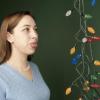
Bronx Cheer Bulb
Source Institutions
In this activity, learners observe what happens when they give a light source like a neon glow lamp a "Bronx Cheer." The lights appear to wiggle back and forth and flicker when learners blow air throu
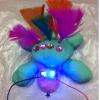
Dough Creatures
Source Institutions
In this technology activity, learners light up the room with electrifying play dough creations. Learners use conductive and insulating homemade play dough to build simple circuits.
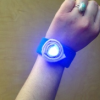
High Tech Fashion
Source Institutions
In this technology activity, learners build simple circuits, design soft circuits using conductive thread, and then sew switch-activated circuits.
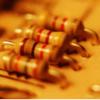
Using Ohm's Law to Build a Voltage Divider
Source Institutions
In this activity, learners apply Ohm’s Law to construct voltage divider circuits. Learners discover how to read resistor codes and calculate resistor values.
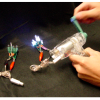
How can You Demonstrate the Efficiency of Different Light Bulbs?
Source Institutions
In this activity, learners actually feel the difference in energy required to light two different types of light bulbs: incandescent light and LEDs.
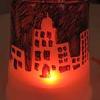
Night Lights
Source Institutions
In this activity, learners create night lights using a plastic cup, programmable PICO Cricket, tri-color LED, and sensor.
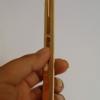
Flat Flashlight
Source Institutions
In this activity, learners build a tiny but powerful flashlight out of simple materials. Use this activity to introduce learners to electrical circuits and conductivity.
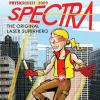
Light and Dark
Source Institutions
Learners examine the properties of light by experimenting with an LED-flashlight and polarizing filters. When two polarizers are used, they block all light when they are placed at right angles.

Shake It Up!
Source Institutions
Learners drop a magnet through a coil of wire to create electric current in a circuit. LEDs in the circuit allow learners to detect the direction of current flow.
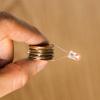
Penny Battery
Source Institutions
In this activity, learners light an LED with five cents. Learners use two different metals and some sour, salty water to create a cheap battery.
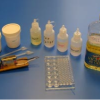
Carrying Charges: Testing for Conductivity
Source Institutions
Learners are challenged to create solutions that conduct electricity and make a buzzer buzz (or an LED light up).
